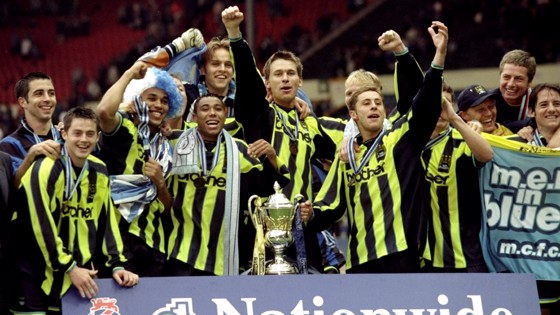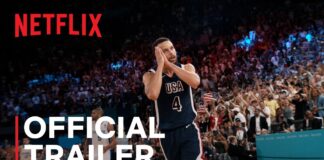Neither a Manchester native nor raised as a supporter, Lou Englefield’s initial love for City instead emerged when the Club was moments from what would have been a hugely significant defeat.
“A friend of mine was born a blue and was from a family of big blues in Salford, she was City through and through,” she beams.
“I wasn’t particularly involved in football at the time, but she’d go to games and then it got to the 1999 play-off final against Gillingham. My mate went to Wembley – she was so excited, and it was so infectious.
“I remember listening to the game on the radio. I just got hooked and absolutely fell in love!”
The drama of that famous play-off final, in which Paul Dickov’s late equaliser and Nicky Weaver’s penalty shootout heroics saw Joe Royle’s side return to the second tier at the first time of asking, was all it took for Englefield to catch the bug.
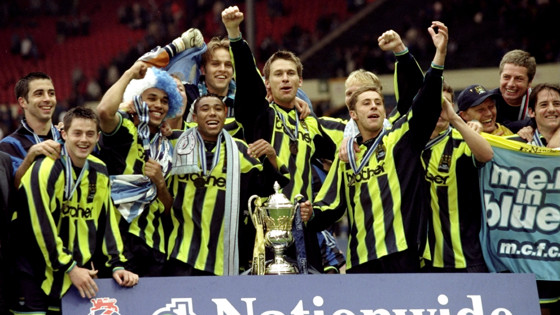
Rain or shine, she would make the two-hour journey from Nottingham to Maine Road with her season ticket-holder friend whenever the opportunity arose but, by the time she moved to Manchester, the Club had relocated to its new surroundings at the Etihad Stadium.
The opportunity to grab a season ticket of her own as City began a new chapter in our history was too enticing to ignore.
And that first venture to City’s new surroundings remains her favourite moment as a supporter: “We played Barcelona (in a pre-season friendly) and if I remember rightly, they put out a team to give us a bit of a chance to start with.
“But then they made some substitutions, which led to a fan close to me shouting ‘don’t panic!’
“Everyone collapsed laughing, it was quintessentially what being a City fan is – that self-deprecating irony. I love it, it is so funny.”
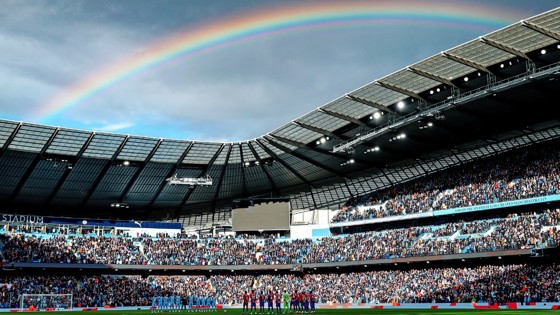
Although Englefield’s time following her beloved City around the country remains some of the best years of her life, instances of homophobia across the United Kingdom, while less frequent, remain an unfortunate blemish on our footballing landscape.
Being a match goer and a member of the LGBTIQ+ community still has the potential to be an intimidating experience, and Lou has been at the forefront of trying to change that for almost two decades.
In 2005, she helped to create the North West’s first LGBTIQ+ multi-sports tournament, which attracted thousands of people from all around the world who identified as part of the community.
The success of that event would evolve into the establishment of Pride Sports – a not-for-profit organisation that works around LGBTIQ+ inclusion in sport and physical activity – 12 months later.
Englefield remains a director to this day, but those early years weren’t without their challenges.
“Within a couple of years it became obvious that more advocacy was needed around LGBTIQ+ people in sport and physical activity,” she reflected.
“We had some pretty negative experiences in those early days, even just trying to book venues. One venue told us it wouldn’t be suitable for us to come and bring a group of gay people to a venue because there were children staying there that weekend.
“It was before the equality act, so there was very little awareness or legislation out there. I look back on it and it’s a heck of a journey we’ve been on.”
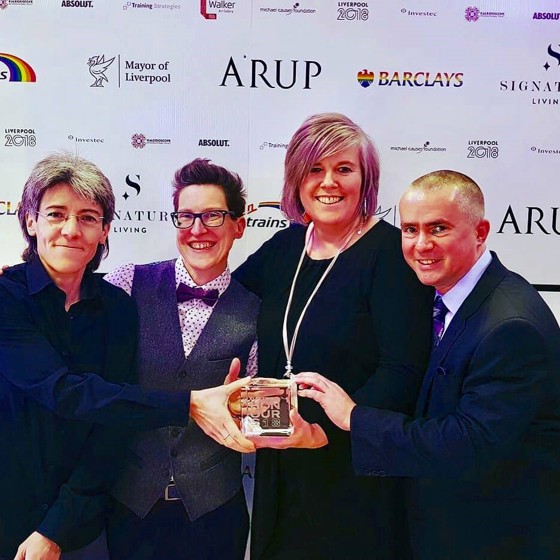
Over the following 16 years, Pride Sports has consistently advocated inclusion for all in sport, whether it be as a team of volunteers helping to facilitate events or supporting grassroots teams right through to working with governing bodies on LGBTIQ+ policy.
The British Athletes Commission – the representative body of Olympians and Paralympians – are just one of the major organisations which have benefited from their expertise while, from a footballing perspective, they have also collaborated with the PFA, FA, Football League and Premier League.
“There are over 250 LGBTIQ+ community sports groups in the UK (and) we try and give them support,” Englefield explains.
“But as part of our work we also run the Football vs Homophobia (FvH) campaign. It wasn’t originally set up by us, but we took over running the campaign in 2012.
“My work is anything from working at policy level with national and international governing bodies of sport down to posting merchandise to people.
“We work a lot around responding to policy, supporting the development of it and doing what we can to make sure that sport is aware of LGBTIQ+ issues.
“In the past it might have been offering advice around athletes coming out or commissioning research for organisations.
“With football, it could be anything from helping players coming out to trans inclusion or supporting matchday stewards to create a more inclusive environment.
“We’re a really small team, lots of us are volunteers so basically you just have to get stuck in and do everything at Pride Sports and FvH as well.”
Endeavouring to make sport and, more specifically, football a more inclusive and understanding environment requires a willingness to learn and adapt from the clubs themselves, from a grassroots level or to the giants of the English game.
Thankfully from Englefield’s experience, that has been the case with several teams across the United Kingdom, including Manchester City.
Her first affiliation with the Club in a professional capacity came more than ten years ago when Alex Williams – then Director of Community Affairs and now City in the Community ambassador – delivered coaching sessions for a football project aimed at empowering LGBTIQ+ young people in Greater Manchester.
An active member of City’s official LGBTIQ+ Supporters’ Club, Canal Street Blues, when they were initially formed a few years later in 2014, Lou has described her involvement with the group as a means to reconnect with the Club as a fan when coaching commitments limited her opportunities to attend matches.

However, she also credits City’s support of the LGBTIQ+ community as another key reason for that renaissance.
“From my perspective, it feels like there’s been a really long story of support for Manchester’s LGBTIQ+ communities from the Club and the foundation as well,” she explained.
“For example, I have been to the City Football Academy a couple of times in the past decade and done training sessions with scholars in the academy.
“For years, we absolutely dined out on the fact that City were one of the first Clubs to get involved in the FvH campaign, and they have done loads of stuff like that and designated games to FvH over the years.
“More recently, they also got involved in Rainbow Laces, actively supported Canal Street Blues, got involved in Pride and sponsored Manchester Pride.
“(But) that’s not just because Pride is there, it feels like that is part of a story of ongoing work and an ongoing commitment from the Club.
“During lockdown, for example, everything was behind closed doors, but you could see the Canal Street Blues logo in the middle of the Etihad while watching matches on the telly. We couldn’t have imagined that kind of visibility back then (when we started).
“It also feels like the Club has committed to its Manchester base and community. There’s a real authentic desire to engage local communities.”
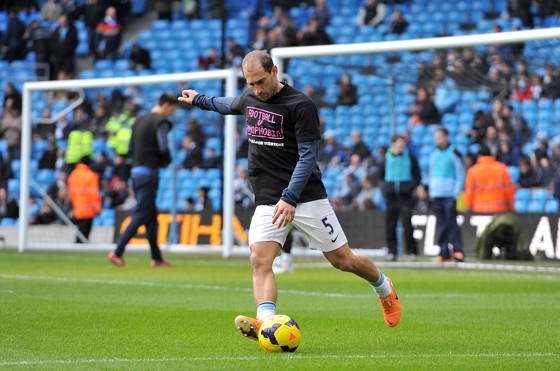
While great strides have been made in recent years, there is still plenty of continued work and education that needs to be done across the footballing landscape.
The push for greater awareness, visibility and support is a responsibility for all, not just those who identify as part of the community, and Lou is keen to emphasise this message.
Furthermore, challenging instances of homophobia remains another crucial element of LGBTIQ+ support from an allyship perspective.
She explains: “LGBTIQ+ people tend to be a bit of an invisible minority. Shows of support or acknowledgement for FvH, Rainbow Laces, Football vs. Transphobia week of action, Pride Month or other key moments is essential.
“It’s really important that LGBTIQ+ people know you’re an ally and one of the best ways to express that is through one of these dates, whether it be putting a post on your social media or inspiring further conversation by talking about some of these issues in your workplace.
“(But) that also needs to be backed up with action as well. One of the most important thing for allies to be able to do is challenge homophobia, biphobia and transphobia when they come across it.
“If you hear someone make an anti-gay joke, for example, challenge it.
“LGBTIQ+ people understand that homophobia happens, it’s something that’s part of our lives that we deal with, but hearing people speak up against it can be one of the most empowering things.”
The Pride Sports website contains further information on their key work and that of Football v Homophobia.
Educational resources on LGBTIQ+ inclusion in sport are also available to access, was well as further information on the workshops which Pride Sports deliver from KS2 right up to University level.
To visit the website, learn more about their work or get involved, click here.

